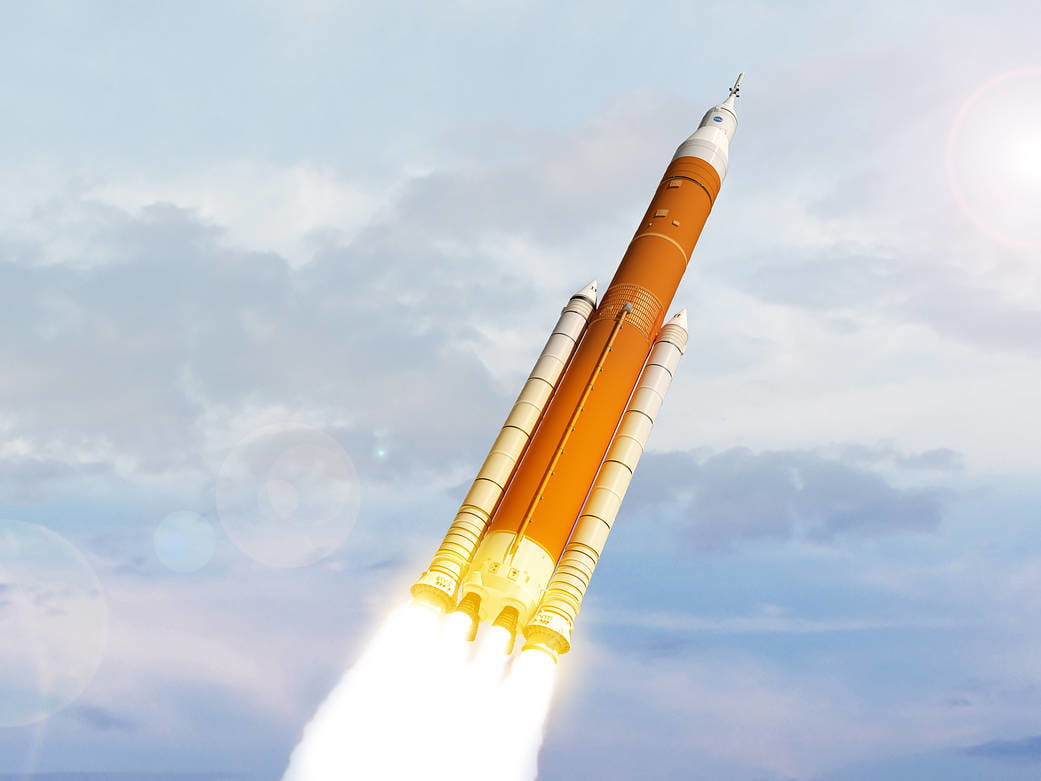The last 12 months saw a myriad of exciting missions head to space, and 2022 looks set to be another equally exciting year of launches.
We’ve picked out three notable missions to enjoy in the coming months, two using SpaceX hardware and one using NASA’s own gear.
Mission: Starship orbital test flight
Provider: Space X
Launch site: Boca Chica, Texas
Date: To be confirmed
Why so special? First orbital flight of the world’s most powerful rocket.
Starship is a reusable launch vehicle comprising the Starship second stage and the supremely powerful Super Heavy first stage.
While the Starship second stage has already been tested in five high-altitude flights, it’s only managed to safely land once. The Super Heavy, on the other hand, is yet to fly.
SpaceX has the rocket stacked and ready to launch for its first orbital test flight and is now awaiting clearance from the Federal Aviation Administration. An announcement is expected at the end of February, and if it’s in SpaceX’s favor, expect to see the rocket blast skyward a week or two later.
The stacked Super Heavy and Starship is 394 feet (120 meters) tall, making it around nine meters taller than NASA’s SLS rocket and the tallest launch vehicle ever built.
Its awesome thrust capability of around 16 million pounds is the greatest ever seen in a rocket, making it around twice as powerful as the Saturn V rocket that powered NASA astronauts toward the moon five decades ago.
Once Starship has met all the necessary safety requirements, it could be used for crewed missions to the moon, Mars, and possibly even further into deep space.
Mission: Ax-1 to the ISS
Provider: SpaceX
Launch site: Cape Canaveral, Florida
Date: February 28, 2022
Why so special? NASA’s first space tourism mission to the International Space Station.
SpaceX will deploy its workhorse Falcon 9 rocket and Crew Dragon spacecraft to carry three private citizens to the International Space Station (ISS) in a week-long trip organized by Texas-based Axiom Space.
The Ax-1 mission will be crewed by Canadian investor and philanthropist Mark Pathy, American entrepreneur Larry Connor, and former Israeli Air Force pilot Eytan Stibbe, and also include mission commander and former NASA astronaut Michael López-Alegría.
The three amateur astronauts have reportedly each paid $55 million for the privilege of staying aboard the orbiting outpost, during which time they’ll work on their own medical-related research and philanthropic projects.
The tourism trips are part of renewed efforts by NASA to commercialize the space station, using such flights to raise funds while increasing access to space for private citizens.
NASA’s Russian counterpart, Roscosmos, recently flew two amateur astronauts to the ISS for a short stay, and shortly before that organized a trip for two Russian filmmakers.
Mission: Artemis I to the moon and back
Provider: NASA
Launch site: Cape Canaveral, Florida
Date: March 2022
Why so special? First test flight of NASA’s most powerful rocket to date, and a major stepping stone to the first crewed lunar missions in 50 years.
NASA is planning to put the first woman and first person of color on the surface of the moon before the end of this decade. But first, it needs to try out the new hardware that will take them there — the SLS rocket and Orion spacecraft.
The first test flight — Artemis I — is currently targeted for March and will involve an uncrewed flyby of the moon by Orion.
The fully stacked SLS rocket stands at 322 feet (98.1 meters) and will create around 8.8 million pounds of thrust at launch — 13% more than the space shuttle and 15% more than the Saturn V rocket.
Both the rocket and spacecraft have undergone extensive testing but are yet to fly. If the Artemis I mission goes well, Artemis II will perform a crewed flyby of the moon, while Artemis III will attempt the first crewed lunar landing since 1972.
